31 Things to Do Instead of Checking Your Phone

If we live in an era of intense FOMO, it's probably because our lines of communication are more expansive than ever. If we're not thinking about replying to a text, it's our inbox or our Instagram feed or Twitter's hyperactive news cycle. It's no wonder that we've become hardwired to reach for our phones every 15 minutes or so, especially when our brains see incoming messages and likes as a dopamine-boosting reward.
Un-learning the habit won't happen overnight—just stopping yourself in the act is a big first step. But it's much easier when you divert your attention to something positive, like listening to a favorite song or even getting up and going for a walk (sans phone, of course). That's science: Our brain needs a reward to form a habit, so the point is to switch that reward from an Instagram scroll to something more mindful.
For that, we have you covered. Below, you'll find 31 mindful activities to try the next time you feel the itch to log on. Pick one and put your phone down. (We'll catch you on the flip side.)

Head outside. Shinrin-yoku, also known as "forest bathing," is the Japanese practice of simply being in nature. Research shows that engaging in this simple activity significantly reduces cortisol and blood pressure, while boosting parasympathetic brain activity—aka the part of your nervous system responsible for rest and equilibrium. Before heading outside, keep COVID-19 guidelines in mind. Wear a mask and practice social distancing.

Go for a walk while you're at it. "Walking meditation" is very much a thing, and an effective thing at that: A 2014 study showed that going for a deliberate stroll helped reduce the effects of depression. (Pro tip: Leave your earbuds at home and just take in the sounds of your neighborhood.) Again, you'll want to follow social distancing guidelines to keep yourself and others safe.

Try your hand at gardening. Even a little corner of indoor greenery in your studio apartment should suffice. In fact, studies show that just looking at nature-y things can give your mood and memory a boost. Focus on feeling the soil, noticing what your plants need, and just appreciating this little bit of life.
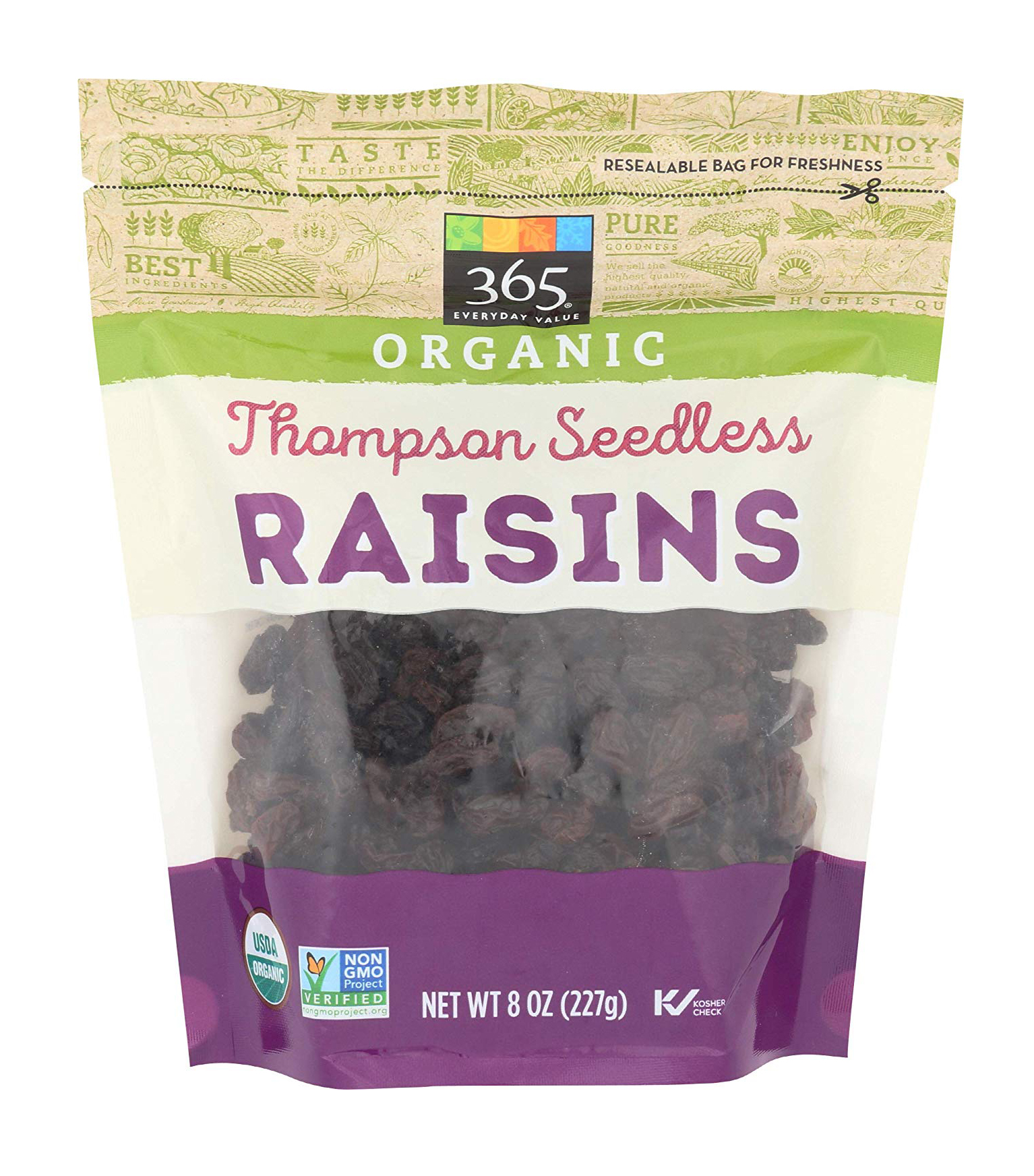
Eat a raisin. (Yes, seriously.) It's called the Sultana exercise, and it's a popular method for mindfulness beginners. Basically, it encourages you to turn eating into a fully sensory experience.

Color. Adult coloring books are still very much a thing.

Rearrange your living room. Or put up that artwork you've been meaning to hang for a while now. Or change your sheets. Or style your coffee table with items around your home. Whatever it is, a little bit of "redecorating" can be fun.

Breathe. Focusing on your breath is one of the simplest and most proven effective ways to be more mindful (and in turn, relaxed). Not sure where to begin? Try "box breathing": Count to four as you inhale, hold for four, count to four as you exhale, hold for four. Repeat.
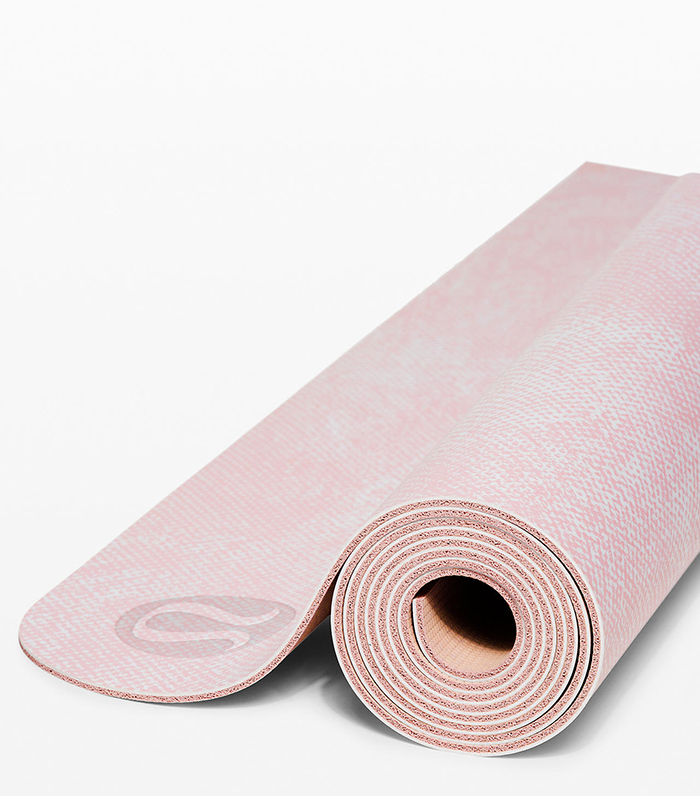
Work out. You know the feeling. Sometimes when you're really in the zone during a sweat session, everything cluttering your brain just seems to melt away. It's hardly a placebo effect: Studies show that combining exercise and meditation amplifies the benefits of each.
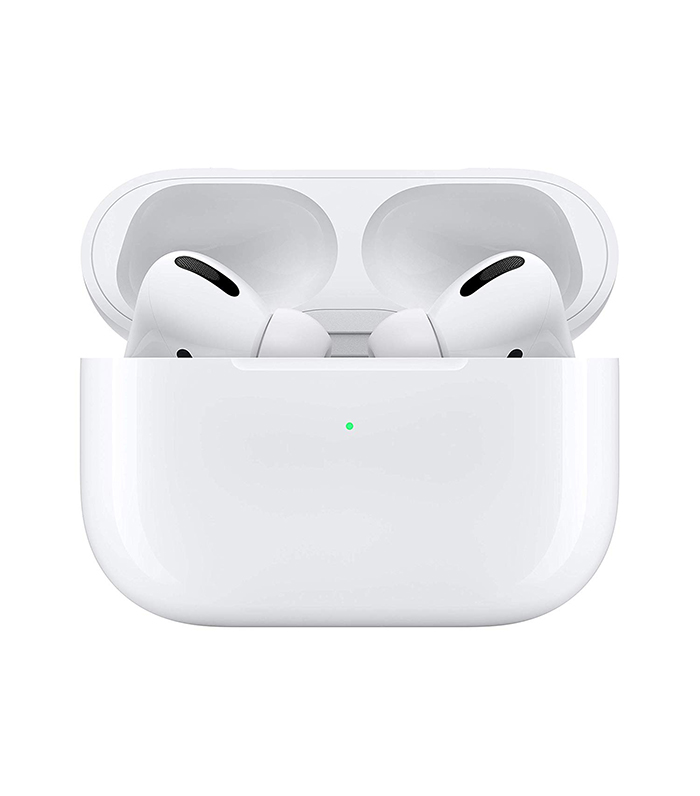
Listen to a song and try to really focus on the lyrics. This works like a charm when I'm feeling frazzled.

Start the morning off with a five-minute stretching routine—before diving into your inbox (or Instagram feed). "It feels really grounding on some stressful days and is helpful in organizing your thoughts," notes senior editor Hallie. Research shows that it significantly reduces cortisol, too.
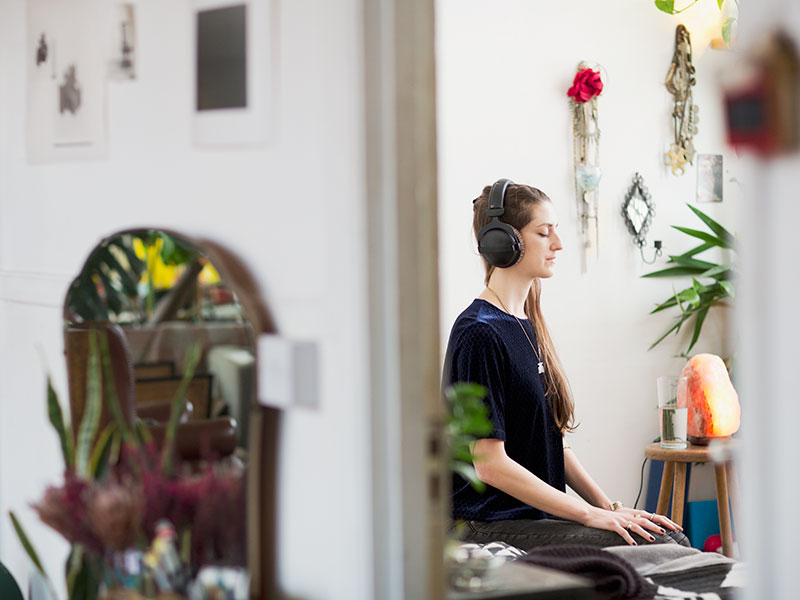
Listen to a guided meditation. We're huge fans of Headspace (free), which offers three-minute sessions to get you grounded at warp speed.

Prepare a meal. After a hectic day, Postmates might sound like the best dinner option. But taking the time to really engage with cooking—washing, chopping, and tasting—isn't just a way to tune out stress but also serves as an important component of mindful eating.
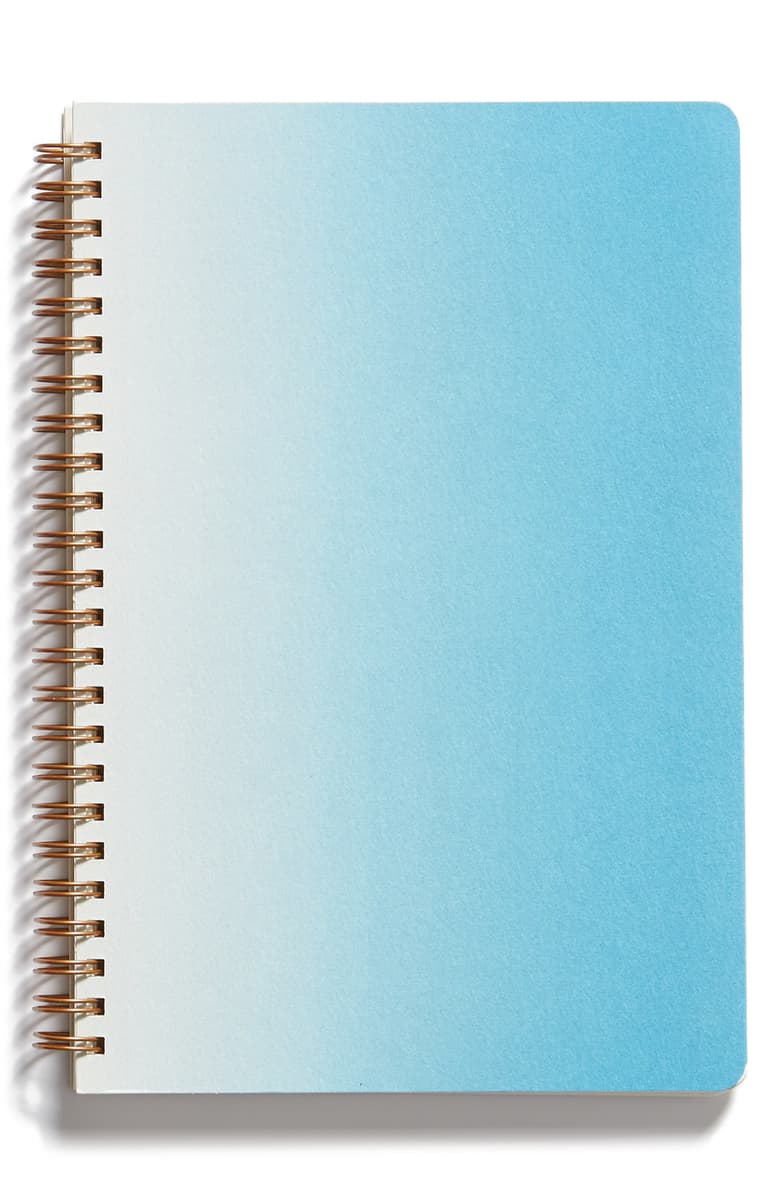
Write in a journal. Sometimes the key to organizing your thoughts is writing it all down. This is also a great exercise for understanding why you're feeling a certain way. There might be something bugging you deep down that hadn't been able to surface just yet.
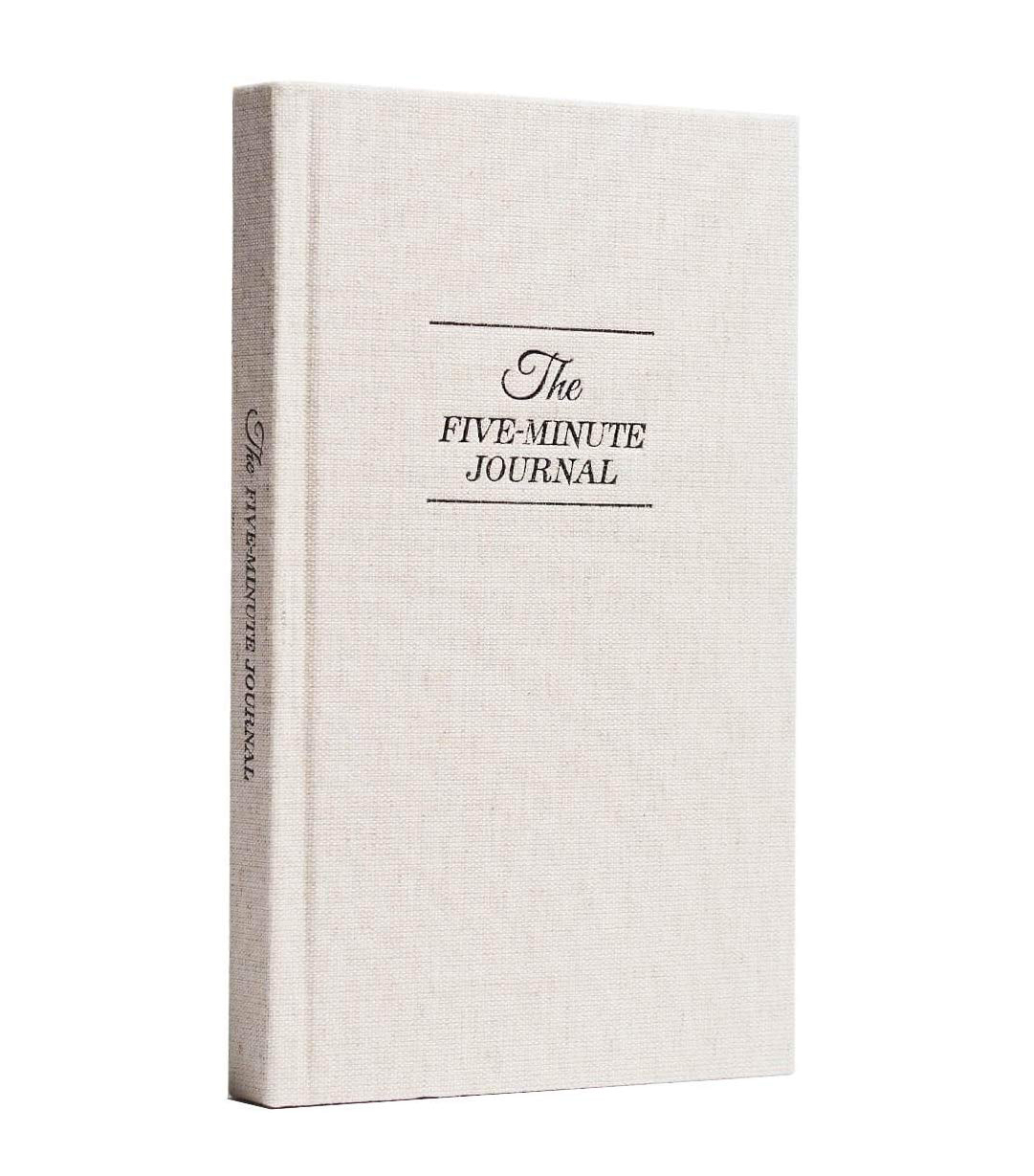
Show some gratitude. While you've got your notebook and pen in hand, consider logging some small things you're thankful for, whether it's that stranger for holding the elevator doors this morning or the beautiful weather forecast this weekend. (Science shows that this exercise is an immediate mood booster.)

Practice mindful observation. Pick an object—any object. Take a few minutes to just focus on that object, noting all of its physical properties. How would you describe its color? Its texture? Does it remind you of anything? What does it feel like?
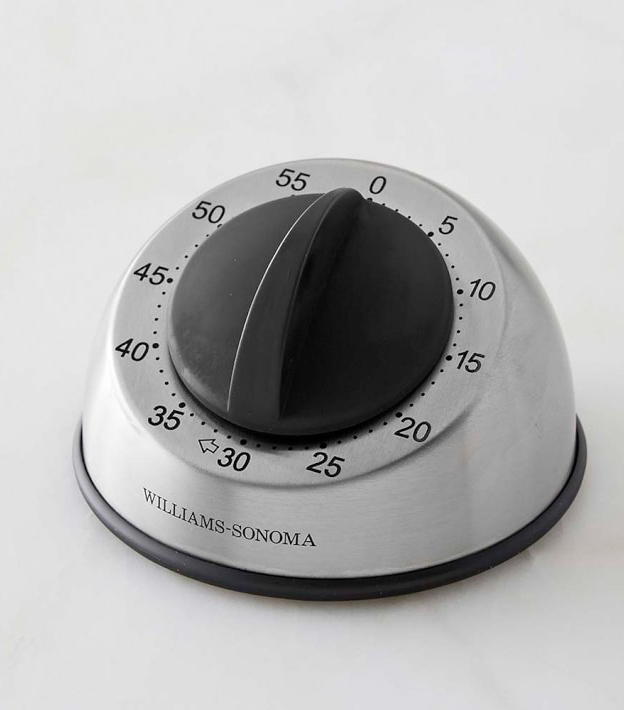
Set a kitchen timer and turn off your phone. If you're a tech addict (aren't we all?), try to disengage—even if it's just for 10 minutes. Hey, you might even remember what actual boredom feels like.
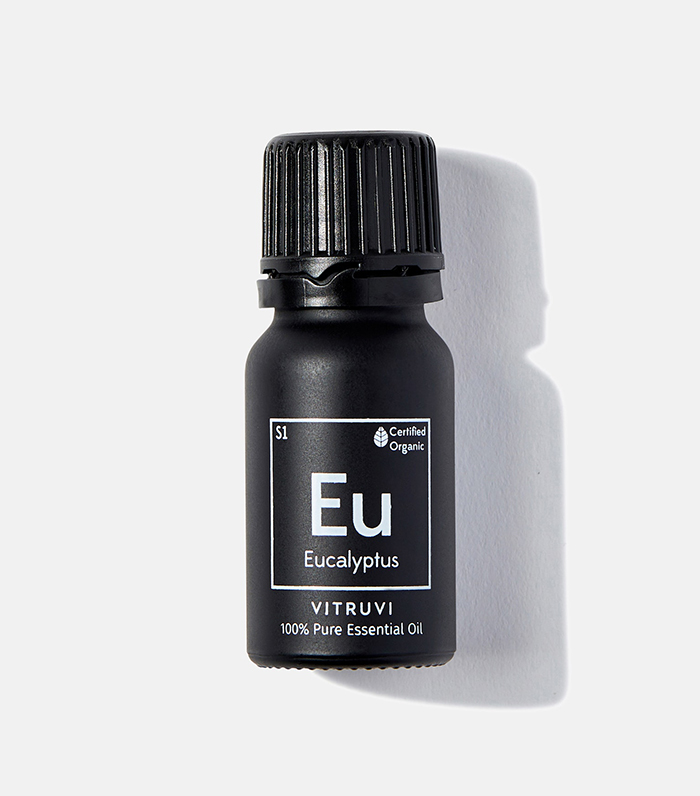
Sniff some essential oils. Don't underestimate the power of scent: Studies show that it can have a significant impact on your cortisol levels, your mood, and your productivity. Try lavender, peppermint, or bergamot if you're looking to unwind. Breathe deep, and take several seconds to absorb the fragrance.

Do a crossword puzzle or sudoku. Training your brain to focus on one thing is a huge component of mindfulness, and trying to remember the name of the 2004 Academy Award winner for Best Picture certainly qualifies.

Clean your house. Don't have Netflix running in the background. Instead, really focus on each task. (Your apartment will be all the tidier for it.)

Finally try doing the entire Korean skincare routine. Ten steps? You have no choice but to concentrate.
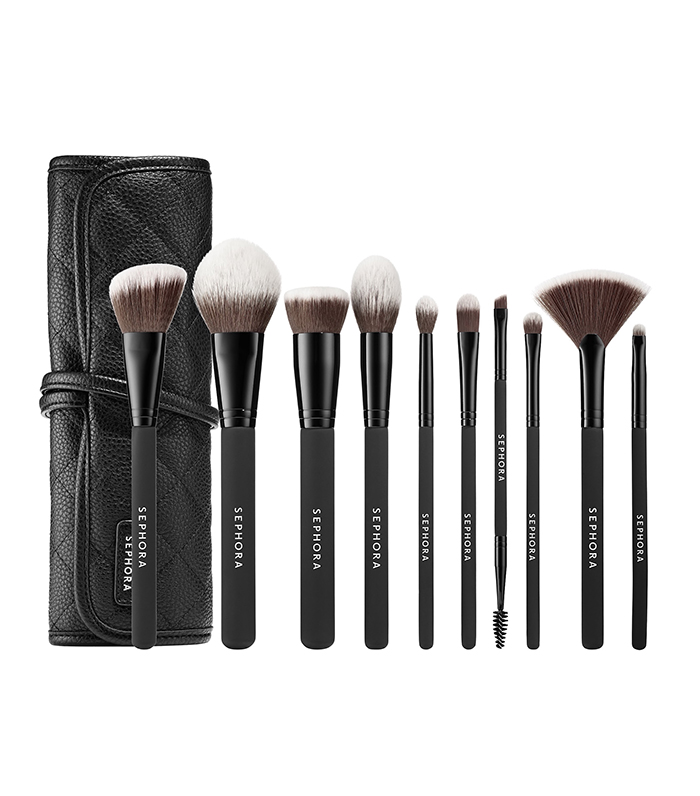
Or play around with some makeup. Hallie swears by this when she needs a few minutes for herself, just for the hell of it. (And let's be real: Makeup brushes are basically ASMR.)
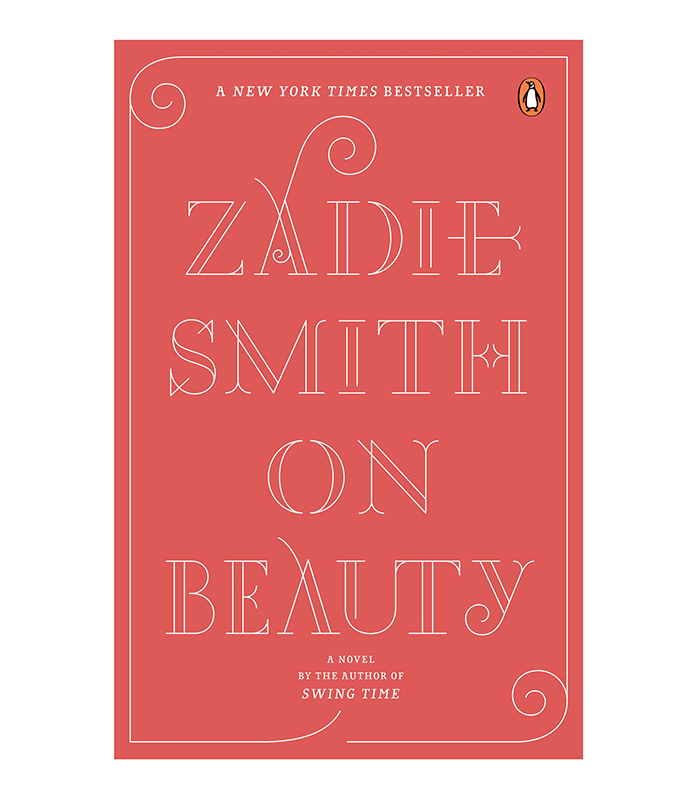
Read a book. "Reading can be a crucial opportunity for mindfulness—the ability to be in the present moment, aware while withholding judgment, both inside and outside of yourself," notes academic coach Marcella Frydman to The New York Times. Set aside at least an hour to allow yourself to really escape.

Brush your teeth. And instead of mentally running through your to-do list, really pay attention to the entire brushing process and what it feels and tastes like. It sounds weird, but you just practiced mindfulness for two minutes—and your teeth are super clean. Two birds!

Or take a shower. That cliché that the best ideas come to us in the shower? It's true for a reason. Take the time to observe the sensations as you rinse off and feel your mind magically clear.
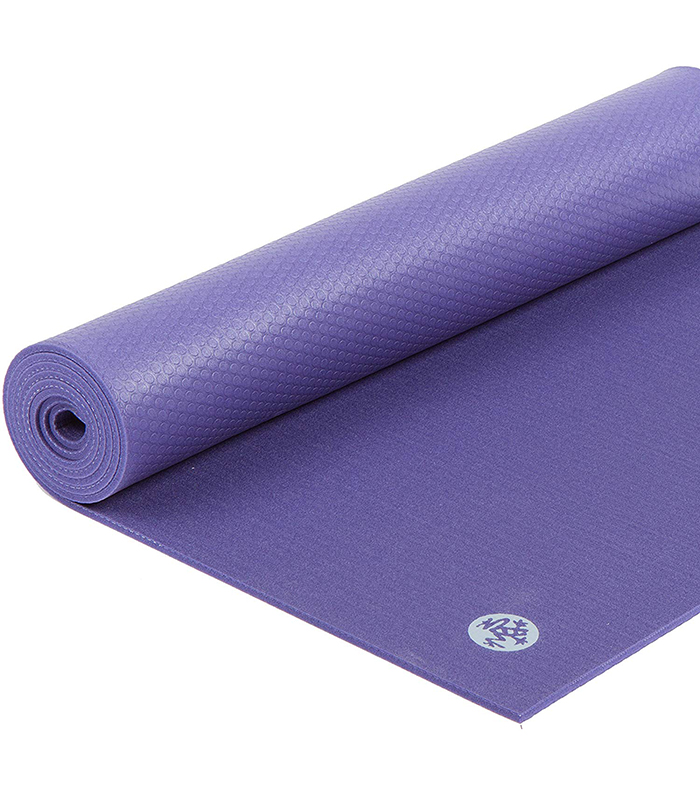
Do yoga. Technically this falls under the category of working out, but yoga is a special case. It's so connected to breath and mindful transition that you have no choice but to be in the moment. Even just working your way through a few simple poses ought to do the trick. (Research also shows that it improves your stress resilience.)

Count backward from 100. This is a great exercise to try when you're lying in bed and your brain is in 523 different places. Bet you can't make it all the way to "three, two, one" without dozing off.

Try a visualization exercise. Whether you're stressing about a big presentation or a half-marathon, take the time to run through it in your head beforehand. Research shows that it's an incredibly effective practice technique. In one study, scientists found that weight lifters who simply visualized their workouts were nearly two times stronger than those who did nothing at all. Basically, you're helping your brain establish patterns for success.

Get crafty. True story: When I realized I had established a nasty habit of being on my computer and phone while watching TV, I took up macramé. It gave my hands and brain something to do, and now, I don't even need Netflix on in the background. Whether it's sketching, knitting, or scrapbooking, consider taking up a new hobby.

Pick designated times to go through your inbox. This might be difficult for those who insist on keeping their unread email count at zero at all times, but this exercise can do wonders for your productivity. Again, the idea is to practice focusing on one thing at a time rather than pulling yourself away from something you're working on to write a quick reply. Try giving yourself 10 minutes every hour to go through all your unreads, and then it's back to the task at hand.
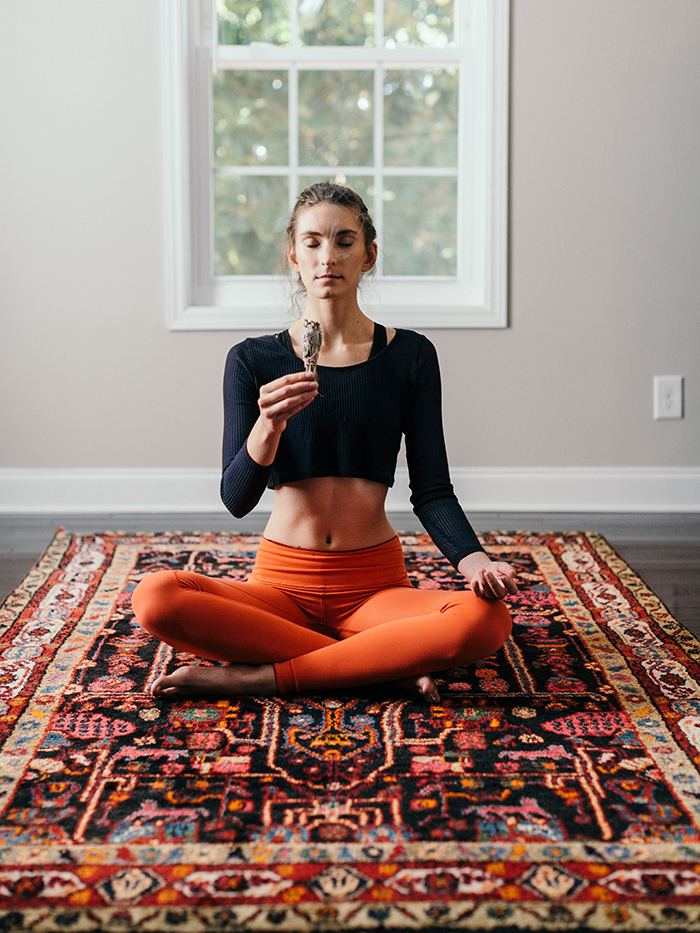
Give yourself a body scan. Close your eyes and imagine a light beam "scanning" your body from head to toe. What sensations come up? Use it as an opportunity to physically check in with yourself without judgment.
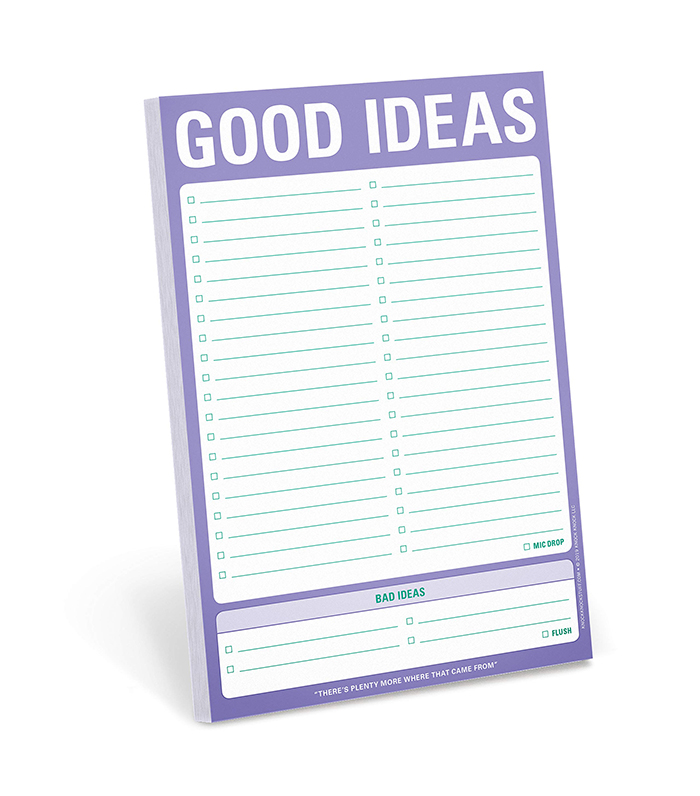
Come up with a list of activities that help you feel mindful. Pardon the fourth-wall break, but compiling this list was practically a mindfulness activity in itself. (Meta!) Plus, you're the best judge of what helps you focus and unwind. Ultimately, meditation is whatever you want it to be.
Next up: How to Cut Down on Instagram, Once and for All
Disclaimer
This article is provided for informational purposes only and is not intended to be used in the place of advice of your physician or other medical professionals. You should always consult with your doctor or healthcare provider first with any health-related questions.
-
 This Founder Shares Why We Should Start Celebrating Rest
This Founder Shares Why We Should Start Celebrating RestBurnout is nothing to be proud of.
By Kia Topps
-
 I Asked J.Lo's Trainer for His Very Best Fitness Tips
I Asked J.Lo's Trainer for His Very Best Fitness TipsGunnar Peterson has thoughts on how to get moving this season.
By Kia Topps
-
 This Style Influencer Turned Founder Shares Her Favorite Ways to Start the Day
This Style Influencer Turned Founder Shares Her Favorite Ways to Start the DayA morning routine from London.
By Candice Aman
-
 Why Dr. Deepika Chopra Believes that Optimism is Resiliency
Why Dr. Deepika Chopra Believes that Optimism is ResiliencyWhy you should start embracing every feeling.
By Kia Topps
-
 13 Products That Will Step Up Your Self-Care Game From Home
13 Products That Will Step Up Your Self-Care Game From HomeGet that glow from within.
By Natalie Gray Herder
-
 How TikTok's Favorite Photographer Helped Me Find My Confidence
How TikTok's Favorite Photographer Helped Me Find My ConfidenceI renewed my relationship with myself.
By MacKenzie Green
-
 These 8 Foods Are the Worst for Rosacea—Here's What to Eat Instead
These 8 Foods Are the Worst for Rosacea—Here's What to Eat InsteadControl those flare-ups.
By Sarah Yang
-
 11 Things to Do If You're Dealing With Anxiety at Work
11 Things to Do If You're Dealing With Anxiety at WorkThese can help.
By Casey Clark

